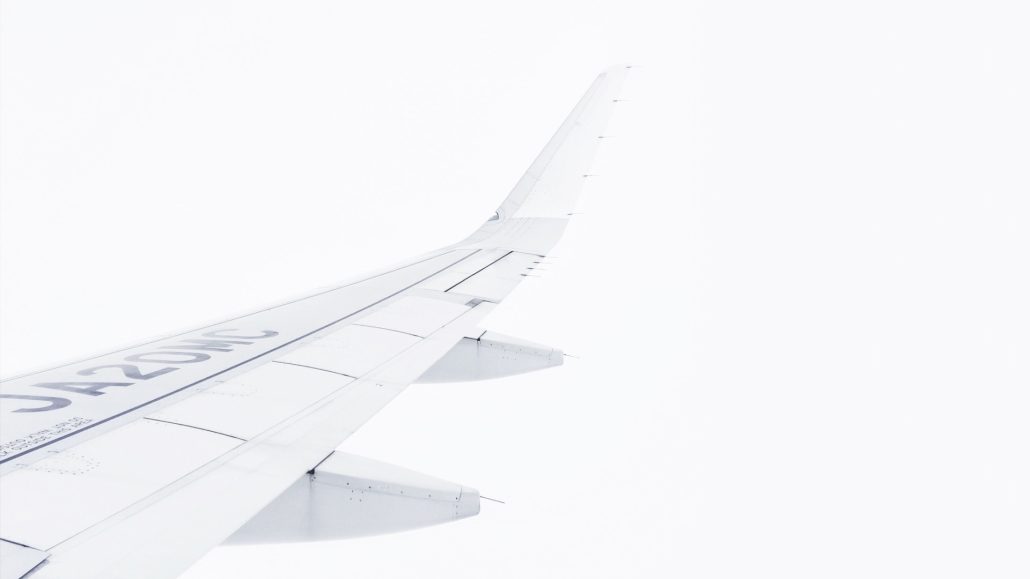Can You Bring Vitamins on a Plane? How To Travel with Supplements
Written by Austin Ruff | 2024


Are you traveling for a work conference, an athletic competition, or a weekend getaway?
Just because you’re leaving home doesn’t mean you should leave your supplements behind. But can you bring vitamins on a plane?
Good news! Traveling with supplements is easy and smart.
The frequent flyers at Thorne have put together this advice based on air travel regulations for traveling with supplements internationally or domestically – basically wherever your trip takes you! We’ve also put together some tips for how to pack vitamins for a flight and which supplements are best for travel, so you can enjoy the trip and maintain your health routine.
TSA rules for how to travel with supplements
Before leaving for the airport, you might have wondered, “Can you bring vitamins on a plane? Are there rules about how to pack vitamins for a flight? What about traveling with supplements other than vitamins?”
To answer these questions, we consulted information provided by the Transportation Security Administration (TSA). If you’re departing from a U.S. airport, then you will go through a TSA checkpoint. The TSA enforces rules on what can and cannot go into the cabin of an airplane.
So, can you travel with vitamins?
The TSA website has precise language on how to travel with vitamins and other supplements. In short, you may pack supplements in either checked or carry-on luggage. Capsules, gelcaps (luckily, they’re not considered liquids), and tablets usually have no issue with security and are allowed through security in carry-on luggage as well as checked baggage.
Generally, the TSA says that when traveling with vitamins or other supplements, it is not necessary to present your supplements or notify an agent about any supplements in your luggage, with a few exceptions we’ll explain below.
How to travel with powder supplements
Powder-like substances greater than 12 ounces by volume (350 mL) will need to be put into a separate bin for X-ray screening and they sometimes will be flagged for extra screening and the container might be opened. In explaining how to travel with powder supplements, the TSA encourages non-essential powders greater than 12 ounces to go in checked baggage.
How to travel with supplements in a liquid form
There are more regulations for traveling with vitamins or other supplements in a liquid form. If you take a liquid supplement in your carry-on, then follow the TSA’s regular guidelines for all non-medicinal liquids like shampoos, lotions, or contact lens solution – each traveler is allowed to carry one quart-sized bag of liquids through the TSA checkpoint, and each liquid must be in a travel-sized container of no more than 3.4 ounces (100 mL).
With only one exception, all of Thorne’s liquid supplements fit the TSA’s travel-sized definition. That’s good news for those asking, “Can you travel with vitamins in a liquid form?”
How to pack supplements in your suitcase
For checked luggage, traveling with vitamins or other supplements is easier than for carry-on items. There are no restrictions or special packing requirements for capsules, tablets, powders, or liquids, and they don’t need to be transported in their original containers. You may use your weekday capsule organizer to keep your supplements on schedule.
To reduce confusion at the security gate, if you are taking your supplements in a carry-on, then you might want to leave as many supplements in their original containers as possible, even if they are bulky. This will also help you keep track of which supplement is which when it’s time to take your next serving.
Always be prepared to answer any questions the TSA agents have and remember that the ultimate decision to allow an item through a TSA checkpoint and into the cabin of a plane is up to the TSA agents on duty.
Traveling with vitamins internationally
Can you bring vitamins on a plane for international travel? Because each country has its own regulations, it’s a good idea to do some research on the individual countries you plan to visit to ensure you will comply with local laws and regulations regarding traveling with nutritional supplements.
If you are traveling with supplements to Europe, EU air travel regulations are generally comparable with the TSA regulations. For example, when traveling with supplements to Europe, carry-on liquids again must be no larger than 3.4 ounces (100 mL).
If you’re returning home through an international security checkpoint and you are unsure of the local restrictions, it might be advisable to leave behind and discard any surplus servings of supplements before entering the airport. (Don’t fret – that’s more room for souvenirs!)
Can you travel with supplements without sacrificing luggage space?
We know – the jars for our protein powders are large and might not fit in your checked luggage. It takes a lot of space to provide 30 servings of protein powder! To help you save room, our frequent flyers at Thorne have some tips for taking a bulky powder supplement “on the road.”
Pour the powder into a heavy-duty resealable bag or another secure container and be sure to take the scoop. Simply labeling the bag or container with “protein” or another straight-forward identifier can help when you go through the security checkpoint, because it can be confirmed with swabbing. If you travel with a water bottle, then pack a small funnel for easy pouring when you are ready to mix your beverage.
You can try this whether you’re flying or traveling by car, bus, or train.
How to travel with vitamins that support recovery from jetlag and other travel-related ailments
You know the feeling. You spend hours traveling, full of excitement and energy for the destination and your plans there. You arrive at your hotel for the night and you’re dog-tired. But the new setting and sounds – an unfamiliar bed, elevator sounds, noise in the hallway, other guests opening and slamming their doors – can affect your brain and keep your thoughts racing, preventing you from falling asleep, getting adequate sleep, and waking refreshed, not to mention jet lag if there’s a time zone change that could upset your normal sleep schedule.
Gut talk
Travel can wreak havoc on the digestive system. The physical stress and mental strain of travel – not to mention the temptations of the hotel’s full-breakfast buffet and all the new food options in your new city! – can leave your microbiome and gastrointestinal tract with undesirable outcomes, causing anything from constipation to diarrhea.
One of the most common causes of constipation during travel is dehydration, especially during air travel in the low-humidity environment of the plane. It’s always a good idea to travel with a refillable water bottle.
Pro tip: Arrive at the airport with your bottle empty and refill it after passing through TSA security but before you board the plane.
For added support to help you replace electrolytes and fight fatigue from travel, be sure to pack an electrolyte powder.
Advice for subscriptions away from home
If you’re planning a long-term trip away from home for work or pleasure, then plan ahead and have your supplements shipped directly to your address. Check your subscription at least seven days prior to shipment to ensure any changes in shipping address have time to take effect.
Connect with a functional medicine practitioner near you – use our Find a Practitioner tool today!
- Wilding JPH, Batterham RL, Davies M, et al. Weight regain and cardiometabolic effects after withdrawal of semaglutide: The STEP 1 trial extension. Diabetes Obes Metab. 2022;24(8):1553-1564.
- Park YM, White AJ, Jackson CL, et al. Association of exposure to artificial light at night while sleeping with risk of obesity in women. JAMA Intern Med. 2019;179(8):1061-1071.
Share:
Related Posts

Benefits of Creatine in Perimenopause and Menopause
Written by Maura MacDonald, MS, RD, CSSD | 2025 As we age, the notion is that we will inevitably become weaker. Not as mobile as

Goodbye Pie Chart, Hello Phase 1 Sliders
Written by Allison Smith, ND | 2025 As we usher in a new era of DUTCH testing which leaves behind the concept of the three-way

Introducing the DUTCH Dozen
Written by Kelly Ruef, ND | 2025 Hormone testing can be complex, which is why Precision Analytical developed the DUTCH Dozen, an interpretive framework that

DUTCH Report Enhancements
Written by Hilary Miller, ND | 2025 Precision Analytical have released the newest version of the DUTCH Test. This is the report’s most significant update

Gallbladder Health 101: What It Does and How to Keep It Working Well
Written by Ashley Palmer & Pooja Mahtani | 2025 The gallbladder may not get much attention compared to the gut, but it plays a central
